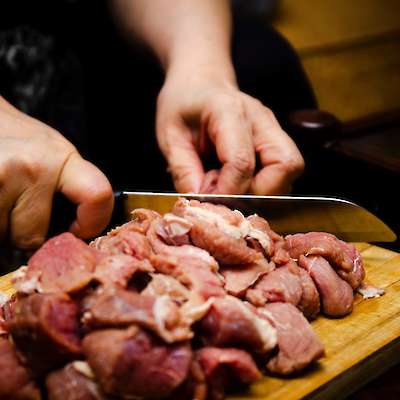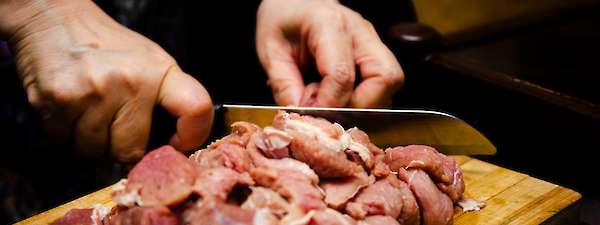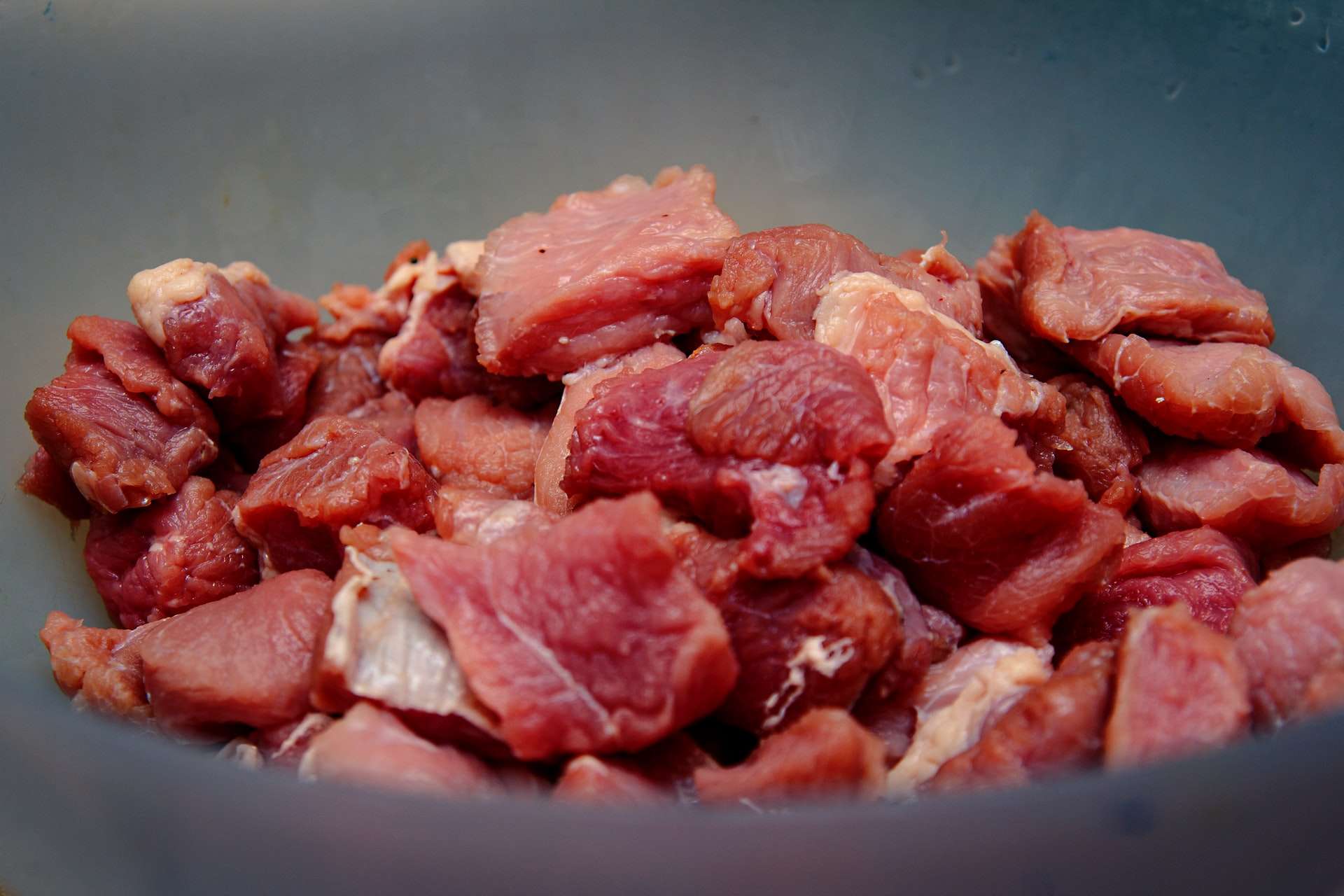
How to Feed a Species Appropriate Diet Part 1
Most of us remember the 1956 classic children’s book by Fred Gipson “Old Yeller”. If you’ve
never read this book I suggest that you do. The story starts out with a runaway/stray yellow- haired dog stealing sides of meat from a hardworking country family during the civil war period.
Old Yeller didn't steal corn, he didn't steal wheat, and he didn't steal fruit! He stole what Mother Nature designed for him to eat! MEAT!
There is no question that the human bond with canines is stronger than any other human animal bond. These canines have served us faithfully for centuries while asking very little in return.The sacrifices they have made on our behalf are extraordinary. I believe if we make the decision to take into our care these faithful companions we have a moral obligation to feed them a species appropriate diet! And this is where the controversy starts!

Feedings dogs, or to be more precise, WHAT we feed dogs has turned into a multi-billion dollar industry. Now keep this in mind, there are about five major companies that produce 90% of all the commercial dog food in the US. Now let me tell you a secret, their number one goal in making commercial dog food is to make MONEY! And there is nothing wrong with that, it's the American way. The crucial question is, is this commercially processed, chemical laden food stuffed in 40 pound bags or 12 ounce cans the appropriate diet for “Man’s Best Friend” ? Common sense and science will help you answer this question a bit later.
It's safe to say that the overwhelming majority of dog owners feed their dogs commercially produced dog food. I call it “fast food”. You simply open the bag or can and pour it in the bowl and it's done. The dog food industry claims you just fed your dog a “balanced” meal developed by professionals who have years of research into exactly what is best for the health and well being of your dog! Nothing could be farther from the truth! Processed mass produced dog food is NOT what you should be feeding your dogs. I know what you’re saying, you’re saying but the dog food I feed has chicken, beef, sweet potato, brown rice, and so on and so on! Okay, let's say you go out to a fancy dinner and after studying the menu you order a New York steak, with a baked potato, with creamed spinach and the waiter comes back 15 minutes later with a silver colored metal bowl filled with some dry baked pellets, you know, the stuff that looks like dog food! You protest with outrage and demand an explanation! The waiter tells you that everything you ordered was ground together baked and dried and put through a machine that produced the little nuggets. That would be the last time you or anyone else would eat at that restaurant. But think about it! That's exactly what we feed our dogs each and every day of their lives, inappropriate processed fast food, some call it junk food; and based on the long term damage this food does to your dog, junk-food is not an unfair description.
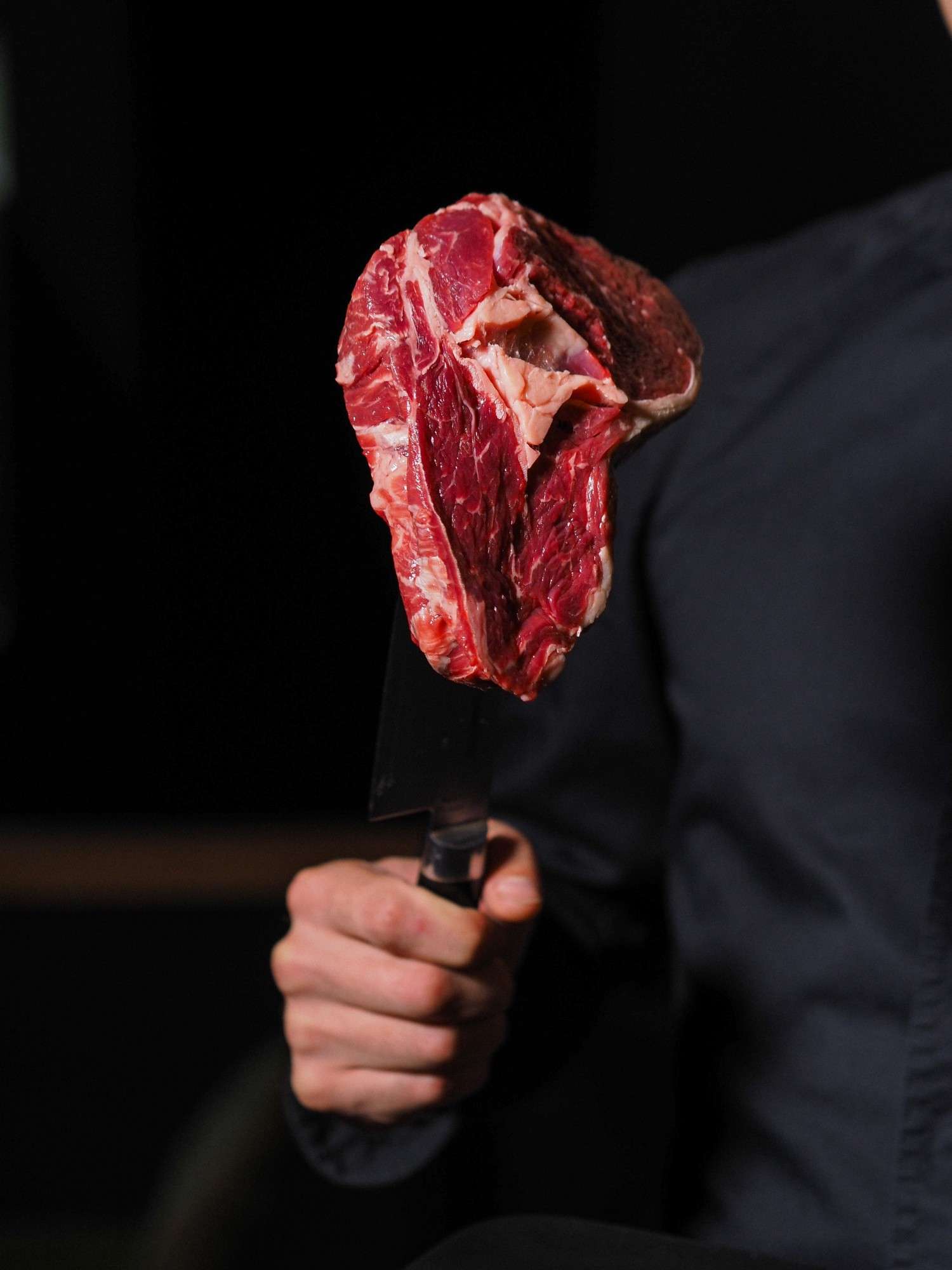
So let me now discuss why processed dry nuggets and canned foods are inappropriate for your dog. Dogs are CARNIVORES, they are meat eaters. This is solely based on the dental structure of theirs jaws and teeth; the chemical makeup of their saliva and the structure of their digestive system. Let's start with the teeth and jaw. The bottom jaw on dogs does NOT move laterally from side to side. This simply means that your dog does not “chew” her food. She chomps and swallows. The bottom jaws of herbivores (plant eaters) and omnivores (plant and meat eaters) do
move from side to side; the bear is a classic omnivore and her bottom jaw does indeed move side to side. The dog also has the physical ability to open her jaws extremely wide in comparison to the size of her head. This allows her to open her mouth wide to grip and hold her prey. Next, let’s look at the dog’s teeth. Dogs have sharp teeth including a matching pair on top and bottom that are slightly hooked and called fangs! These teeth help her rip and tear flesh.The physical teeth makeup of all mammal carnivores is pretty much the same. Plant eaters have flat or smooth teeth, like cows, horses, and humans. Plant eaters also have an enzyme in their saliva that dogs don't possess. This special enzyme helps break down carbohydrates as soon as chewing begins. Well, dogs don't really need carbohydrates and as I stated earlier they don't chew.
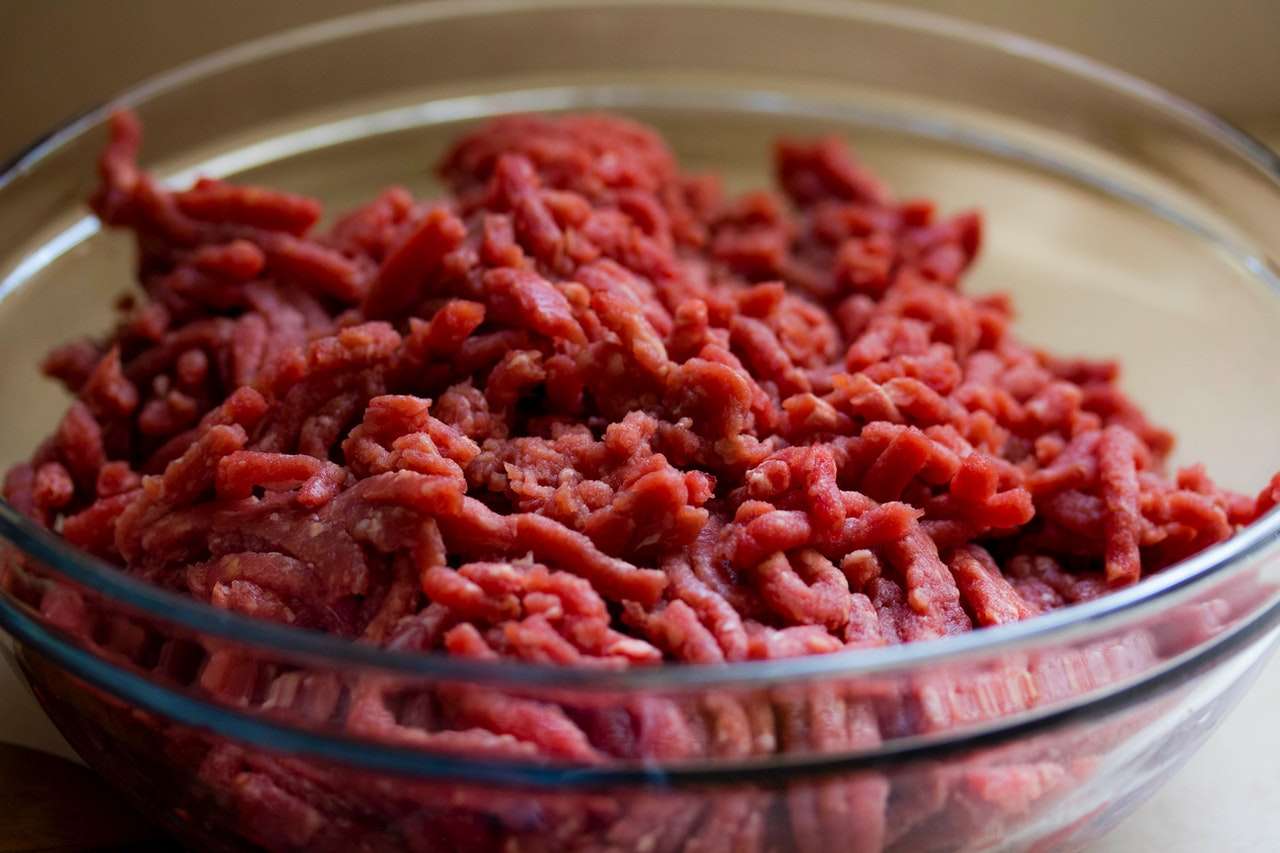
Now, let's talk briefly about your dog's intestinal system. Do you know why your dog can drink out of the toilet and eat out of your garbage can without getting sick ? It's the same reason she can eat a dead rat or spoiled meat ( I'm not suggesting that you feed any of these things). She has very powerful gastric enzymes that can handle these icky germs and bacteria. Her system was setup by Mother Nature to handle large amounts of protein. Since nature did not set dogs up to break down carbs try this experiment with your dog. Give her some whole carrots and some corn kernels. If she eats this follow her the next day and see what comes out of her digestive system. The veggies will come out pretty much the same way they went in! This should be a huge Aha moment for you! If your dog’s digestive system can NOT process something perhaps it should not be fed to her. And don't tell me that if you pound and grind up the veggies your dog can handle them better. That’s like saying humans can eat wood if we turn it into sawdust and mix it with oatmeal.
In spite of the clear indisputable physical evidence of what your dog should be eating the naysayers will argue that since our dogs (wolves) have been domesticated they have adapted to the processed human created/altered diet (fast food). First let me explain the definition of domestication; it simply means that an animal has been tamed by man to be used in service. This usually means farm animals, cows, pigs, horses, or pets, dogs cats, parrots. Alligators and polar bears are not domesticated but like dogs they too are meat eating carnivores. Domestication has nothing to do with genetic makeup or physiological structure. Those changes usually happen over millions of years.
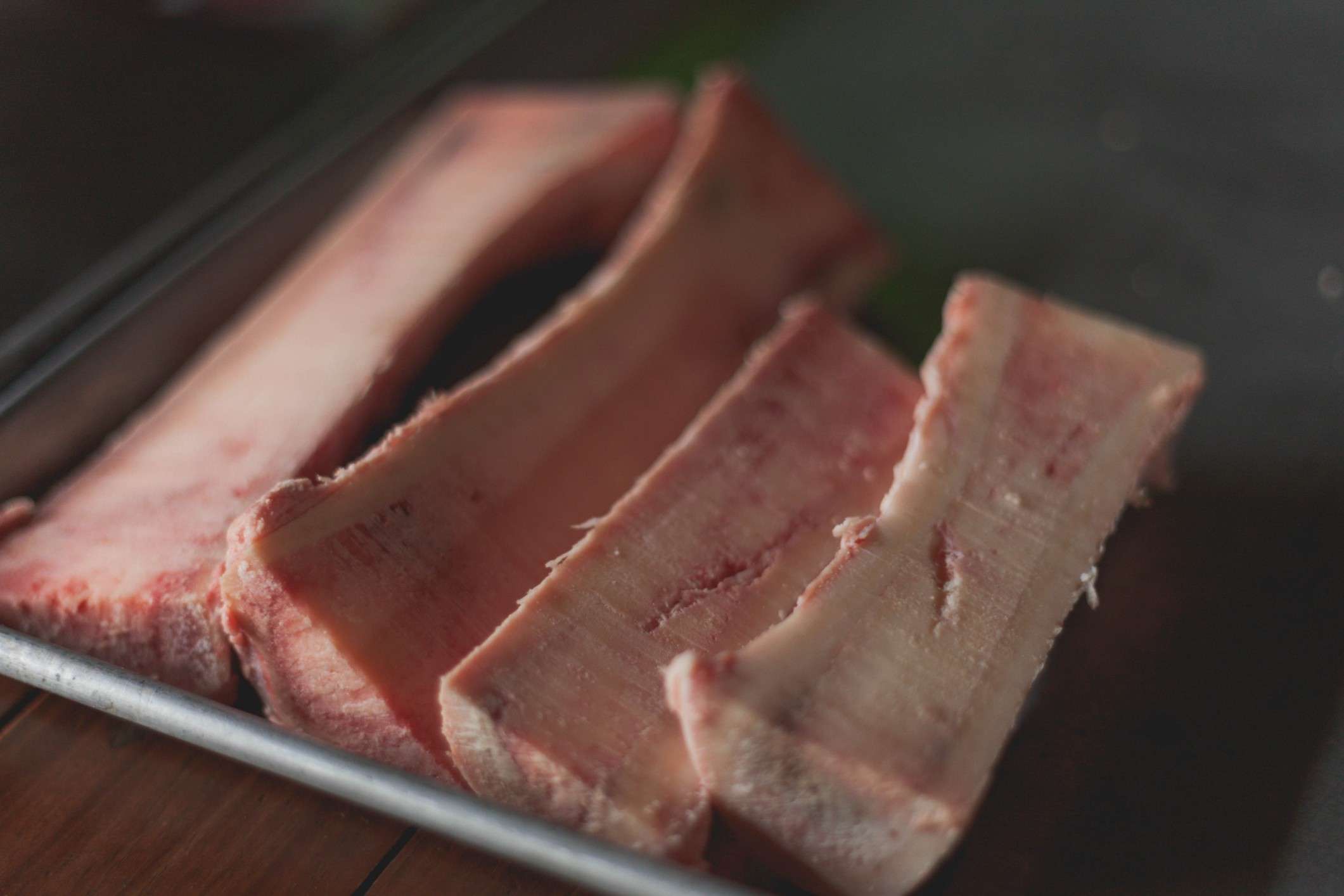
Now, I'd like to discuss the biggest “con-job” of them all pulled by dog food companies and many Veterinarians. But first let me ask you this question. Have you ever gone into your Doctor’s office and shopped for groceries? Has your Doctor ever taken your blood pressure, and then tried to sell you some chicken wings or turkey legs! I'm guessing that hasn't happened to you. But I'd bet you’ve visited your friendly neighborhood Vet and you saw all kinds of high priced processed fast food! Hmm...could these dedicated dog health care professionals be working with dog food companies? , but I digress. The biggest “con-job” pulled on dog owners by dog food companies is convincing you that their food is balanced with all your dog’s daily nutritional requirements. Well guess what, it IS balanced but there are two problems. These processed foods are more often than not balanced with improper or unnecessary ingredients and there is no scientific proof that a dog’s diet needs to be balanced at every meal! Just like humans, a dog’s diet needs to be balanced over a period of time. Use your own diet as an example. Are ALL your meals balanced? Cup of coffee and a bagel for breakfast, small salad for lunch, veggies meat and pasta for dinner! Not a bad day of meals? Is it balanced? Who knows, who cares. My point is your dog does not need to have balanced meals at every feeding. But you fall into the “balanced meal” trap and it keeps most of the dog owners paying the vets and dog food companies billions of dollars every year for inappropriate dog food.
In part two I will discuss the dangerous long-term effects of feeding an inappropriate diet to your dog and I will discuss what to feed and how to do it.
Ed Hill
Contact
